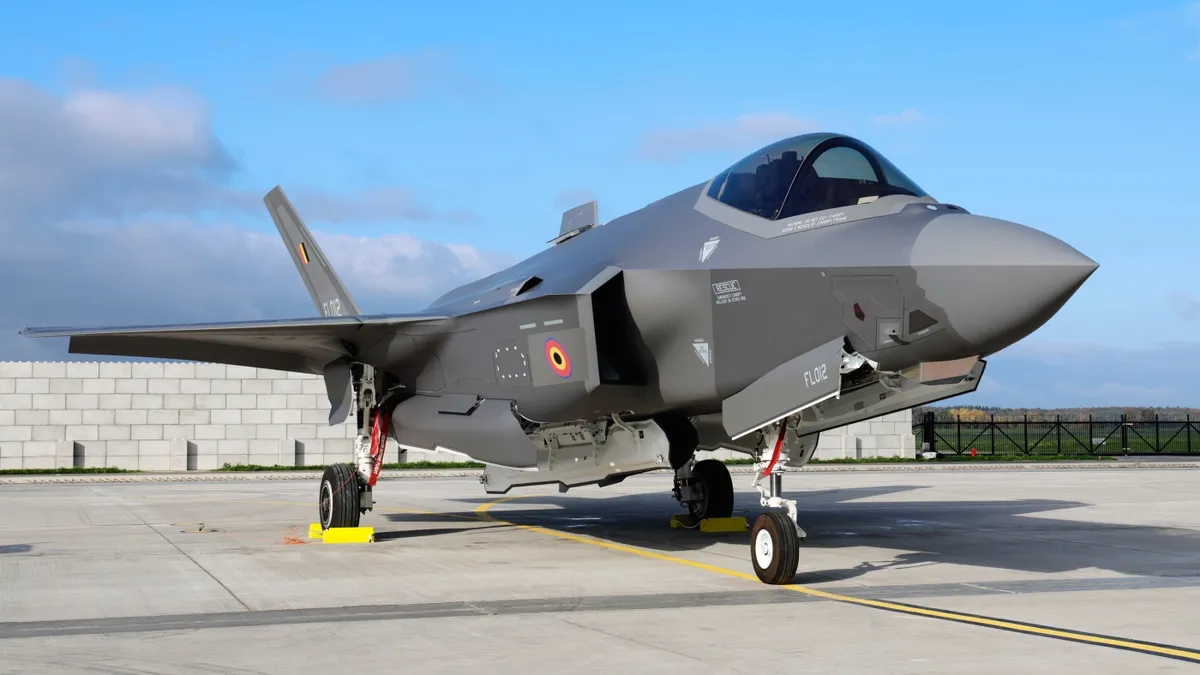
In a significant move, President Donald Trump has announced his agreement to sell the F-35 fighter jet, the United States' most advanced military aircraft, to Saudi Arabia. This decision has raised concerns regarding potential access to sensitive American technology by China, which is Saudi Arabia's primary trading partner. The reaffirmation of this sale came during Saudi Crown Prince Mohammed bin Salman's visit to Washington on Tuesday.
Some officials within the Republican administration have expressed apprehension that the sale of the F-35 to Saudi Arabia could jeopardize Israel's qualitative military edge in the region. This concern is particularly pressing given President Trump's reliance on Israeli support for his ongoing peace efforts in Gaza. Israel, which has actively utilized the F-35 during its military operations, is one of 19 countries that either possess the aircraft or have agreements to acquire it.
The F-35, also known as the Lightning II, has been a subject of both admiration and criticism since its inception nearly two decades ago. Manufactured by Lockheed Martin, over 1,200 units of this stealth fighter have been produced, supporting approximately 300,000 jobs across 49 states and Puerto Rico. The F-35 serves multiple branches of the U.S. military, including the Air Force, Navy, and Marines, showcasing its versatility in various combat scenarios.
Marines have deployed the F-35 in combat operations in Afghanistan, while Italian variants participated in NATO exercises against Russian aircraft in September. Despite its capabilities, the F-35 has faced criticism for its complexity. Designed to accommodate the needs of the Air Force, Navy, and Marines, its varied operational requirements have led to ongoing debates about its effectiveness. The aircraft is recognized as the most expensive Pentagon program, with costs reaching up to $77 million per unit in 2023, according to the Congressional Research Service.
Amidst these discussions, there are fears regarding China's knowledge of the F-35's technology. A report from the Defense Science Board in 2013 suggested that Chinese cyberattacks may have compromised data from numerous Pentagon programs, including the F-35. However, experts like Bradley Bowman from the Center on Military and Political Power argue that ongoing upgrades to American military systems mitigate these risks. "If the aircraft were significantly compromised, Saudi Arabia wouldn't be pursuing it," he stated.
Originally conceived in the 1990s to replace aging fighter jets, the F-35 aims to allow pilots to seamlessly transition between bombing and aerial combat. Described as a fifth-generation fighter, it boasts advanced stealth technology, sophisticated radar capabilities, and superior networking features for enhanced situational awareness. However, as the program progressed, costs escalated dramatically. By the time the F-35 took its inaugural flight in 2006, expenses had ballooned considerably.
A recent report from the Government Accountability Office estimates that maintaining and modernizing the planned fleet of 2,470 F-35s over a projected 77-year lifespan could exceed $2 trillion. The report also highlighted significant delays, noting that Lockheed delivered 110 jets last year, all of which were late by an average of 238 days.
Concerns about operational readiness have also emerged. In 2023, the F-35's mission performance rate was only about 55%, significantly lower than program goals. Factors contributing to this shortfall include delays in establishing maintenance facilities and equipment shortages. Dan Grazier, a senior fellow at the Stimson Center, has labeled the F-35 program a failure, citing its high maintenance demands and reliability issues.
In response to criticisms, Lockheed Martin has defended the F-35, asserting that it remains the cornerstone of military capabilities for 20 allied nations. "It is combat proven and provides the most advanced capabilities and technology," the company stated, highlighting the aircraft's extensive flight hours and operational role in global security.
The sale of the F-35 to Saudi Arabia has sparked a complex debate involving national security, military readiness, and international relations. As the situation unfolds, the implications of this decision will undoubtedly shape the future landscape of military aviation and geopolitical dynamics.